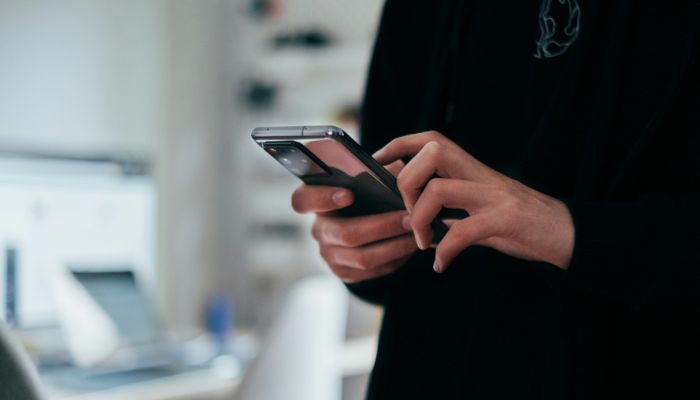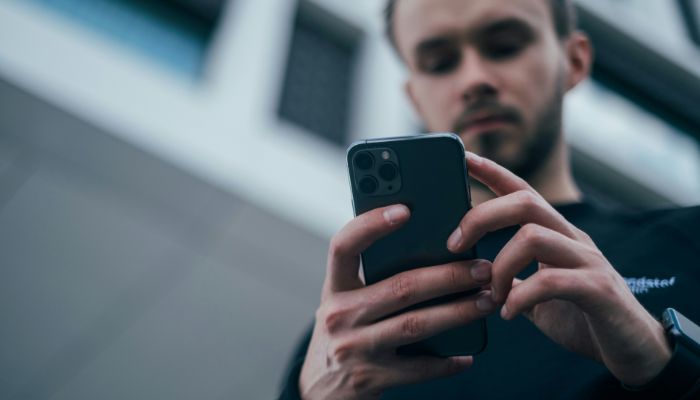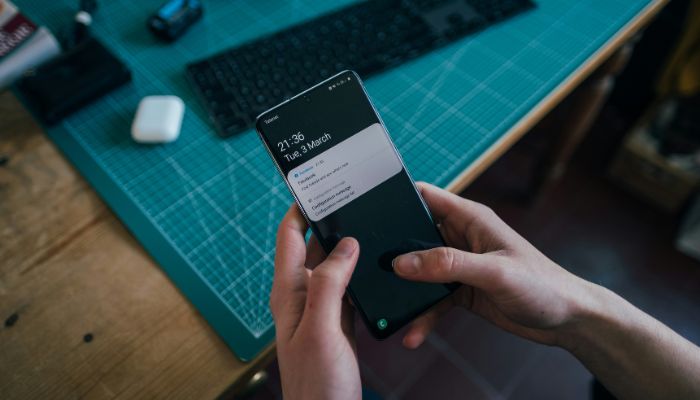
Tracking a phone with a dead battery is complex, as essential features like GPS, Wi-Fi, and cellular signals become inactive. Traditional tracking methods fail in these scenarios; however, your service provider might still locate the device using cell tower triangulation.
Preemptively enabling tracking apps and services increases finding chances but demands battery life. Promptly notifying your carrier and authorities enhances recovery likelihood. To understand the full scope of effective strategies and precautionary measures, continue exploring.
Understanding Mobile Phone Tracking
Understanding mobile phone tracking is crucial for anyone looking to locate a lost or dead phone. Mobile phone tracking employs various technologies, primarily GPS, to pinpoint the device’s location with high accuracy. GPS accuracy can be influenced by multiple factors such as atmospheric conditions, obstructions, and the quality of the GPS receiver in the phone.
In emergency situations, accurate tracking can be lifesaving, enabling swift response by emergency services. However, tracking capabilities are often contingent on the phone’s battery life, as a depleted battery can limit the ability to locate the device effectively.
Privacy concerns are an essential aspect to consider in mobile phone tracking. Unauthorized tracking can lead to significant privacy violations, making it crucial to understand who has access to tracking data and under what circumstances. Individuals must remain aware of the potential misuse of tracking technologies and take steps to safeguard their privacy.
Furthermore, there are legal implications associated with mobile phone tracking. In many jurisdictions, tracking someone else’s phone without their consent is illegal and can result in severe consequences. Understanding these legal parameters ensures that tracking efforts remain both ethical and lawful.
Can You Track a Phone If It’s Dead? How Identingly Can Assist?

1. Phone Lookup Services
At Identingly, our phone lookup service helps you retrieve important information about a phone number, even if the device itself is off or dead. You may not be able to track a phone directly when it’s powered down. But you can still gather details about the owner, previous interactions, and any linked records that might give clues about its last known activity.
2. People Search Capabilities
Using our people search service, you can find out more about the person associated with a phone number. This can be especially useful if the phone is lost or if you need to contact someone who might have been in touch with the phone’s owner before it was turned off. This service provides access to public records, contact information, and other relevant data that can assist in your search.
3. Verifying Last Known Contacts
Through Identingly, you can verify the last known contacts associated with the phone number before the device went dead. This can help piece together the last activities or interactions. Which might provide hints on where the phone could be or who might have been in contact with it recently.
4. Access to Related Records
Identingly’s services also allow you to explore related records, such as address history and other contact details, to help trace the owner’s recent locations. While this won’t track the phone in real-time, it can offer valuable context that aids in understanding where the device might have been last used.
How a Dead Battery Impacts Tracking?
A dead battery significantly hampers the ability to track a mobile phone, rendering many of its tracking features inactive. When a phone runs out of battery life, it loses power to operate GPS, Wi-Fi, and cellular signals, all essential components for tracking accuracy. Consequently, the phone becomes effectively invisible to most tracking technologies, which rely on these signals to pinpoint its location.
In emergency situations, the inability to track a phone with a dead battery can pose significant risks, particularly if the user is lost or in danger. Emergency responders often utilize mobile phone signals to locate individuals quickly; hence, a powered-down device complicates rescue efforts.
From a device security perspective, a dead battery also means that the phone cannot communicate with security services designed to lock or wipe the device remotely. This exposes the phone to potential unauthorized access and data theft.
Additionally, data retrieval becomes challenging when the device is off, as cloud-based services and applications cannot synchronize or back up the latest information.
Preemptive Measures for Phone Protection

Implementing preemptive measures is essential for safeguarding your phone against potential risks.
- Set a robust lock screen with a strong password, PIN, or biometric authentication to prevent unauthorized access. Regularly back up data to cloud services or external storage devices to ensure you don’t lose crucial information in case of theft or damage. Consider tracking SIM card without a phone as an additional precaution to enhance recovery chances.
- Activate GPS on your phone to enhance your ability to locate it if it gets lost. Many devices include built-in tracking services that you can enable through settings. If you lose your phone, these services can help pinpoint its last known location.
- Enable remote wipe features to allow you to erase all data from your device remotely if it is stolen or permanently lost. Ensuring that sensitive information doesn’t fall into the wrong hands.
- Additionally, notify your provider immediately if your phone is lost or stolen. They can help lock the SIM card, preventing misuse and possibly assist in tracking the device.
Taking these preemptive steps significantly enhances your phone’s security and increases the chances of recovering it or minimizing damage if it is lost.
Role of Location Services in Tracking
Location services play a pivotal role in tracking a lost or stolen phone. By leveraging GPS accuracy, these services can pinpoint the exact location of a device. You can also use location services to locate a lost phone on Google Maps. Providing a clear view of its last known location. However, frequent use of GPS can significantly drain the battery, raising concerns about battery preservation. To mitigate this, many smartphones are designed to balance GPS accuracy with battery conservation, ensuring longer tracking capabilities.
Privacy concerns are another critical consideration. Location services must comply with regulations to protect user privacy, limiting unauthorized access to location data. This balance is crucial, as it ensures that while users can locate their phones, their data remains secure against potential misuse.
In emergency situations, the role of location services becomes even more significant. For instance, during an emergency, first responders can quickly locate individuals if their phones are equipped with active location services. This capability can be lifesaving, underscoring the importance of maintaining these services.
Lastly, legal implications exist when tracking a phone. Authorities often require legal authorization to access location data, ensuring that tracking efforts respect legal boundaries. This ensures that while location services are beneficial, they are used responsibly and ethically, safeguarding individual rights.
Utilizing Network Provider Assistance
While location services offer a powerful means of tracking a lost or stolen phone, another significant resource is the assistance provided by network providers. Network providers can play a pivotal role in locating a device, even when its battery life has been depleted. Utilizing their extensive network coverage, these providers can often track the last known location of the phone before it went dead.
By analyzing signal strength and the phone’s interaction with various cell towers, network providers can create a triangulated position that narrows down the phone’s location. This method is particularly useful when location services are no longer operational due to a dead battery.
Some providers also offer services that enable remote access to key data, allowing communication with emergency contacts. This ensures that essential information is relayed even when direct contact with the phone is impossible.
Network providers may also have specialized services designed for emergency situations, providing a more robust solution compared to standard tracking methods. By leveraging their infrastructure and technical capabilities, network providers offer an indispensable resource for locating a phone when conventional methods fall short.
Exploring Third-Party Tracking Applications

Third-party tracking applications offer an additional layer of security and versatility when it comes to locating a lost or stolen phone. These apps often provide enhanced features such as improved GPS accuracy, which can be crucial when pinpointing a phone’s location. Despite the phone being dead, some apps may still offer valuable information, such as the last known location before the battery life expired.
While these applications can be incredibly useful, users should be aware of potential privacy concerns. Collecting and storing location data can expose sensitive information if not properly secured. Ensuring that the app complies with privacy regulations is essential for maintaining user trust.
Another factor to consider is signal strength. Some third-party applications can track a phone based on its connection to nearby Wi-Fi networks or cell towers, even if the device itself is no longer operational. This can sometimes offer an additional clue to its whereabouts.
Steps to Take When Phone Is Lost
When a phone is lost, the initial steps taken can significantly impact the chances of recovery.
- First, contact your emergency contacts via another phone to inform them about the situation. They may assist in reaching out to you if the phone is found.
- Next, retrace your steps, particularly focusing on areas like public transport. Check with the lost property departments of buses, trains, or stations to see if your phone has been turned in. Informing them promptly increases the likelihood of recovery.
- If the phone is lost in a public place, visit nearby establishments and inquire if someone has handed in a lost phone. Be sure to leave your contact information with them.
- Contact local authorities if you suspect the phone might have been stolen. Provide them with the phone’s details, such as the make, model, and IMEI number, which can assist in identifying your device if recovered.
Conclusion
Tracking a mobile phone becomes difficult when it’s turned off or has a dead battery. However, enabling location services, using third-party tracking apps, and seeking help from network providers can improve the chances of finding a lost phone. Knowing these methods and acting quickly can reduce the challenges of a non-functional device.
Frequently Asked Questions (FAQs)
How does “Send Last Location” help in tracking?
“Send Last Location” is an iOS feature that tracks your phone’s location when the battery is low. It sends the last known location to Apple’s servers before the phone powers off. You can check this location using the Find My app, providing a final reference point before the phone goes offline. This feature is useful if your phone is lost or stolen, offering one last chance to find it before it shuts down.
Can you locate a phone without a battery?
You cannot locate a phone without a battery. Once the battery dies, the phone stops communicating with cell towers, GPS, or Wi-Fi networks. This means there is no signal for tracking. If you lose a phone with no battery, you can only rely on the last known location before the battery died. Features like “Send Last Location” or apps like Find My can help if they were activated before the phone lost power. However, once the battery is dead, real-time tracking is impossible.